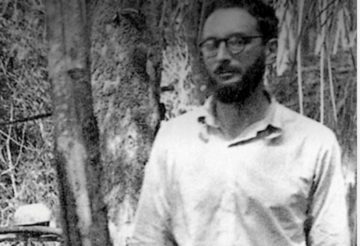Algis Valiunas in The New Atlantis:
 Claude Lévi-Strauss (1908–2009) was the foremost anthropologist of the twentieth century, and one of its most renowned intellectuals of any persuasion. Common readers, if they know him at all, tend to do so only by Tristes Tropiques (French for “Sad Tropics”), his 1955 memoir of his fieldwork among Brazilian tribes and his travels as an academic junketeer in other alien enclaves. That book is salted with animadversions on the spread of the “monoculture” of the West doing its worst to refashion the world in its unhandsome image.
Claude Lévi-Strauss (1908–2009) was the foremost anthropologist of the twentieth century, and one of its most renowned intellectuals of any persuasion. Common readers, if they know him at all, tend to do so only by Tristes Tropiques (French for “Sad Tropics”), his 1955 memoir of his fieldwork among Brazilian tribes and his travels as an academic junketeer in other alien enclaves. That book is salted with animadversions on the spread of the “monoculture” of the West doing its worst to refashion the world in its unhandsome image.
When he retails for a popular audience his experiences among the Caduveo, Bororo, and Nambikwara Indians, his observations are exceedingly sharp, shrewd, and empathetic. Yet although Tropiques recounts at length his own travels and explorations, its famous first sentence, “I hate travelling and explorers,” is not a lie or even a gross exaggeration. He was happiest in the seclusion of his study, and the works that made his formidable reputation among social scientists were books conceived of other books. When he writes for this scholarly audience, laying out his trademark “structuralist” interpretation of primitive kinship relations and myths, his findings show little real life behind them. The work that made him academically famous, and that he spent most of his career writing, shows no true connection with the peoples whose ways of life he is purportedly discussing.
More here.
